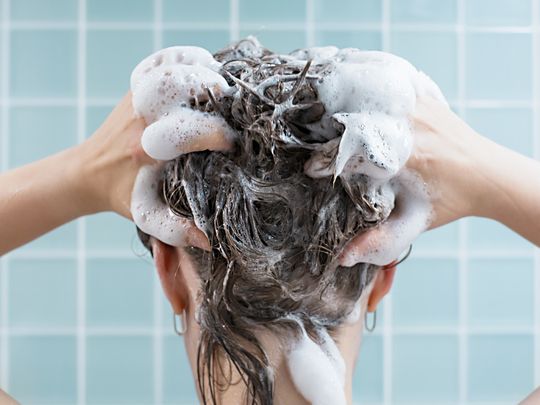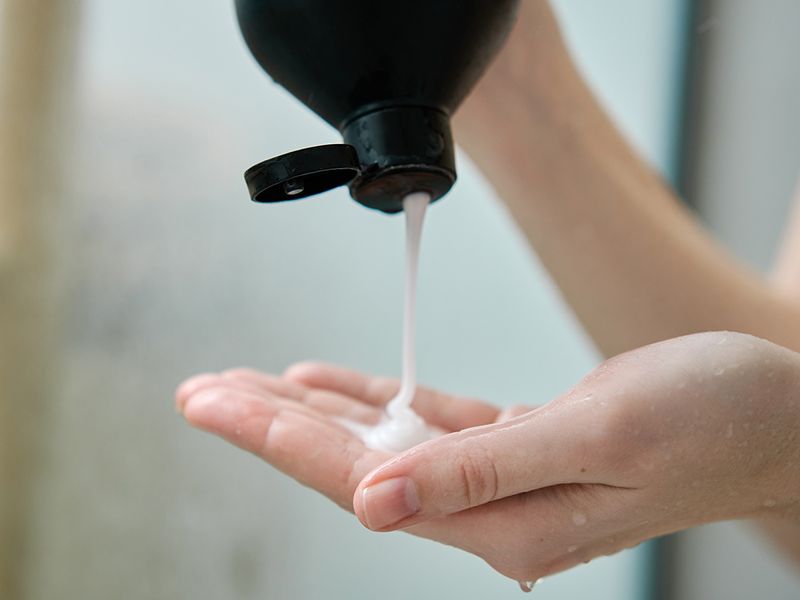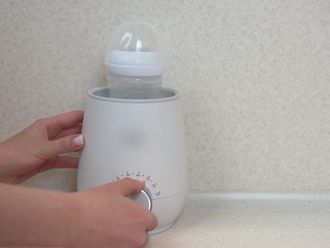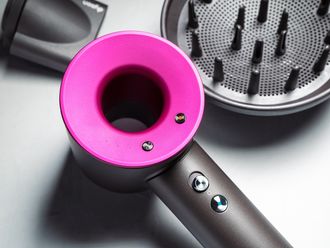
If you’re struggling with eczema, you’re not alone.
According to US-based National Eczema Association, it’s estimated that one in 10 individuals will develop eczema during their lifetime, with prevalence peaking in early childhood.
But when this condition affects your scalp, it can cause itchiness, redness and inflammation. Flaking skin can fall onto your shoulders, and while it might look like dandruff, it can be much harder to treat.
A good starting point, however, is eczema shampoo. We spoke with Dr Yulia Krasnaya from Evolution Aesthetics Clinic, Dubai. She broke down how to spot the difference between dandruff and eczema, and recommended specialised shampoos to help treat the scalp condition.
Based on our expert’s advice and top-rated reviews, we curated a list of the best eczema shampoos for your hair. Pick it up during Super Saver Week and enjoy discounts, as well as free, fast delivery with Amazon Prime.
1. Best Overall: Nizoral A-D Anti-Dandruff Shampoo
With nearly 96,000 4.2-star reviews, Nizoral A-D Anti-Dandruff Shampoo, is powerful, effective and gentle on the skin. Our top pick comes highly recommended by Dr Krasnaya, who said: “[It] is a great choice as it contains ketoconazole, which helps reduce fungal growth and alleviate itching and flaking.” The shampoo has a rich, thick lather and helps with scaling, flaky scalps. It’s even safe to use on colour-treated, chemically processed or gray hair. Surprised reviewers say they’ve noticed an immediate improvement after the first wash. The brand advises using it twice a week for lasting results.
2. Best for Dry Scalp: Head & Shoulders Clinical Strength Dandruff Shampoo
A great option for dryness and flakiness, and one of Dr Krasnaya’s top recommendations, this Head & Shoulders’ shampoo uses specialised ingredients to treat dandruff and eczema. The selenium sulfide, in this product, is antifungal and treats both severe dandruff and seborrheic dermatitis or scalp eczema. You can use it every time you shampoo your hair, or twice a week, but the brand advises shaking the bottle before use. Reviewers share experience of their itchiness and redness calming down, and a refreshing cooling sensation in the scalp when the shampoo is applied.
3. Best for Sensitive Skin: Vanicream Free & Clear Medicated Anti-Dandruff Shampoo (Pack of 2)
A powerful shampoo that helps relieve and control the symptoms of scalp eczema and dandruff, Vanicream’s Free & Clear is formulated without sulfates, phosphates, dyes, fragrances, and other unnecessary chemicals and preservatives. As a result, Dr Krasnaya said: “[It] is fragrance-free and gentle, and suitable for sensitive skin, with pyrithione zinc to help control flaking and itching.” Reviewers who have used it for years, say they find it effective right from the first day of use. Some, however, say its watery consistency is unlike most shampoos and takes some getting used to.
4. Best for Oily Hair: Neutrogena T/Sal Therapeutic Shampoo
Eczema doesn’t impact everyone the same way. Unfortunately, certain types of eczema can trigger the scalp to overproduce oil, so the more you shampoo, the more you might end up irritating your scalp. Neutrogena’s T/Sal solves this issue by breaking down build-up and oil on your scalp. Its primary ingredient – salicylic acid – softens and removes scaly, flaky patches with each use, without irritating the skin. Reviewers have seen results with just one wash, and say it leaves their hair and scalp feeling rejuvenated.
5. Best for Flaking Scalps: DHS Zinc Shampoo
Harnessing the power of two per cent pyrithione zinc, DHS Zinc Shampoo reduces inflammation and the appearance of dandruff. It’s remarkably effective against itchiness and irritation as well, and is formulated with hypoallergenic and fragrance-free ingredients. When you massage it into your hair, it forms a rich lather, which you can leave on your hair for a few minutes before rinsing off. Reviewers say it leaves behind a soothing tingling sensation, but a few commented on a ‘medicated shampoo’ scent that lingers for a while post-shower.
6. Best Two-in-One: Denorex Extra Strength Anti Dandruff Shampoo and Conditioner
A product that’s recommended by the US-based National Eczema Association, Denorex’s shampoo and conditioner is all you need to manage your scalp eczema. It contains three per cent salicylic acid to control and treat dandruff, scalp eczema and psoriasis – all without stripping your hair of its natural oils. The result is shinier, healthier hair. The vitamin-enriched formula both conditions and moisturises the hair, and is gentle enough for regular use.
7. Best Natural: Wild Naturals Eczema Psoriasis Shampoo
If you’re giving medicated formulations a break and looking for a more organic option, try Wild Naturals’ shampoo. It uses a combination of natural ingredients, like aloe vera and manuka honey to soothe and moisturise itchy and flaking scalps. There’s also Cehami extract, a hydrating ingredient that’s also a natural analgesic, and can help relieve the pain of severe itching or eczema. Although most organic, sulfate-free shampoos have minimal lather, reviewers were surprised to find this product producing a light foam. This is thanks to coconut oil extract, which is a natural foaming agent. Many reviewers have seen successful results with this shampoo in their children, since it’s so gentle on sensitive skin.
What causes eczema and how can one identify it?
Eczema or seborrheic dermatitis is incredibly common, and one of the reasons for this is the fact that it is caused by many factors – genetic, environmental and immune.
Dr Krasnaya explained: “The exact cause is not fully understood, but it is believed to be related to an overgrowth of a yeast called Malassezia, which is normally present on the skin. This overgrowth can lead to inflammation and flaking. Other contributing factors include stress, hormonal changes, cold and dry weather, and the use of harsh hair products. People with a family history of eczema, asthma, or allergies are also more prone to developing scalp eczema.”
If you’ve developed eczema in your scalp, you might initially confuse it with dandruff, since it’s texturally similar.
Dr Krasnaya explains how to differentiate between the two: “Dandruff is characterised by dry, white flakes that can fall off the scalp and are often accompanied by mild itching. It is mainly caused by an oily scalp and a build-up of skin cells. On the other hand, scalp eczema presents with more severe symptoms, such as yellowish, greasy flakes, redness, and intense itching. Eczema can also cause patches of inflamed skin that may be swollen and sore. If you're experiencing significant redness, itching, and greasy scales, it's more likely to be scalp eczema rather than simple dandruff.”
Eczema shampoos: an effective starting point

This is where eczema shampoos come in. Gentle and free of irritants or allergens that contribute to the skin condition, these shampoos are different from other products you’d find in pharmacy or supermarket aisles.
Dr Krasnaya said such shampoos can be very effective in managing scalp eczema: “Shampoos that contain ingredients like ketoconazole, zinc pyrithione, selenium sulfide, coal tar, and salicylic acid [work well].”
Ketoconazole and zinc pyrithione have antifungal properties that help reduce the yeast that can trigger eczema. Selenium sulfide, on the other hand, helps slow down the rate of skin cell turnover and reduces flaking. Dr Krasnaya added: “Coal tar has anti-inflammatory properties and helps to reduce scaling, itching, and inflammation. Salicylic acid helps to remove scales and reduce build-up on the scalp.”
She noted that it’s also beneficial to choose shampoos that are fragrance-free and designed for sensitive skin to avoid further irritation.
How to treat hair with scalp eczema
There are two key factors that go into caring for hair with scalp eczema: gentle and consistent care.
Dr Krasnaya said: “It is generally recommended to wash your hair two to three times a week with a specialised shampoo. Avoid using hot water, as it can strip the scalp of natural oils and worsen eczema. Instead, use lukewarm water. After washing, gently pat your hair dry with a towel rather than rubbing it.”
You can also use oil on your scalp, but our expert advises using caution when doing so: “Applying oils can be beneficial for some people, but it's important to choose lightweight, non-comedogenic oils like jojoba or argan oil, and use them sparingly. Avoid heavy, greasy products that can clog pores and exacerbate symptoms. Regularly moisturising your scalp can help keep it hydrated and reduce flakiness.”
Our recommendations are independently chosen by Gulf News editors. If you decide to shop through links on our website, we may earn an affiliate commission, as we are part of Amazon Services LLC Associates Program.











